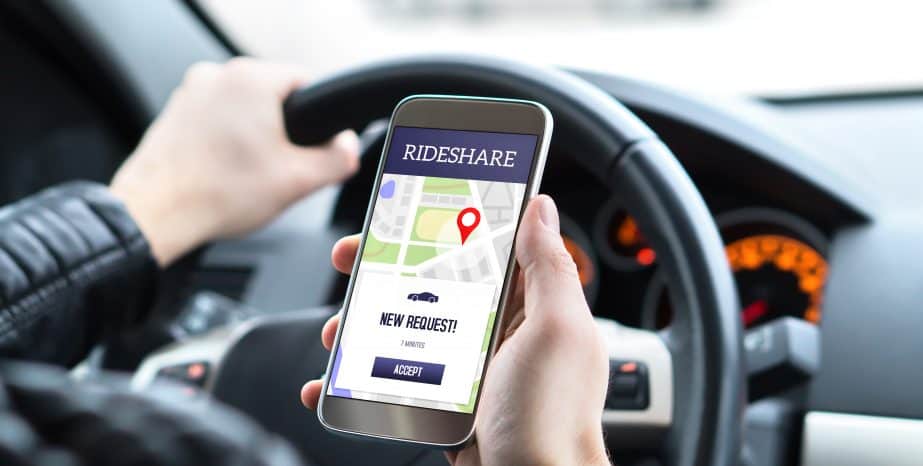
What Happens if I’m Injured During an Uber or Lyft Ride?
Sometimes, ridesharing companies also make the headlines for reasons they would like to forget. As these companies have gotten busier, the cost of traffic crashes has increased, to the tune of about $13 billion per year.
Personal auto insurance policies usually do not cover these drivers in these situations. As a result, these motorists are basically uninsured. However, as outlined below, these crash victims are still able to obtain fair compensation for their serious injuries.
In order to obtain this compensation, a Los Angeles personal injury attorney must diligently collect evidence, such as the police accident report, medical bills, and witness statements. Then, an attorney must put all this evidence together like pieces of a jigsaw puzzle, in order to create a clear picture for jurors to see.
Commercial Operator Duty of Care
Most noncommercial drivers have a duty of reasonable care. Since they are professional operators, Uber drivers, taxi drivers, bus drivers, and other commercial operators have a higher duty of care. According to California law, these operators “must use the utmost care and diligence for their safe carriage, must provide everything necessary for that purpose, and must exercise to that end a reasonable degree of skill.”
Driving behavior at an intersection is a good example. When they have green lights, most noncommercial drivers can simply accelerate through the intersection. But because of the duty of utmost care, Uber drivers arguably must stop, or at least slow down, to make sure the intersection is clear before they move forward.
This duty also applies directly to passenger safety. Uber drivers must pick up riders at safe locations and drop them off at safe locations. Dark alleys or busy street corners are not safe places.
Breach of Care
Essentially, negligence is a lack of care. Ridesharing operators could breach the duty of utmost care in one of several ways.
Behavioral Negligence
Fatigue and distraction are the two biggest behavioral negligence areas in this context. Other forms of behavioral negligence include epilepsy or another serious medical condition and substance abuse.
Many ridesharing operators have other full-time jobs, so by the time they get behind the wheel, they are already dangerously fatigued. Driving after eighteen consecutive awake hours is like driving with a .05 BAC level. That’s above the legal limit for commercial operators in California. Additionally, especially if they are in an unfamiliar area, many Uber and Lyft operators drive with one eye on the road and one eye on a GPS navigation screen.
Environmental Negligence
It never rains in California, but it pours, man, it pours. Especially since they have a duty of utmost care, Lyft and Uber drivers must slow down when the roads are wet, the sky is dark, or environmental conditions are less than ideal. News stories often say that bad weather “caused” a crash. But that’s not exactly true. The driver’s failure to adjust, not the inclement weather itself, caused the crash.
Operational Negligence
Driving negligence includes things like speeding and making an unsafe lane change. Negligent drivers who break such safety laws and cause car crashes could be legally responsible for damages as a matter of law.
Operational negligence also applies to rider safety. As mentioned, rideshare operators must pick up and drop off passengers in safe locations. They must also keep them safe during the ride. Smoking could make people with respiratory problems seriously ill. In the coronavirus age, drivers also have a duty to take additional safety precautions, such as masking and social distancing.
Third Party Liability
If Uber and Lyft executives thought labelling their drivers as independent contractors would make them immune from liability lawsuits, they were sorely mistaken. The respondeat superior doctrine usually still applies in these cases. Employers, including ridesharing companies, are financially responsible if their employees are negligent while they are acting in the scope of employment.
California law defines these key terms in broad, victim-friendly terms. Employees are any individuals whom the company controls in any meaningful way. That includes independent contractors. Additionally, any act which benefits the company in any way is within the scope of employment. That includes driving around waiting for a fare. The company benefits by having cars close to riders.
Ridesharing accidents are complex, but compensation is available. For a free consultation with an experienced personal injury attorney in Los Angeles, contact the Law Offices of Eslamboly Hakim & Sharona Hakim. We do not charge upfront legal fees in these matters.
Image Source: Shutterstock
Sharona Hakim
Sharona Eslamboly Hakim, Esq. is a successful personal injury attorney and the principal of the Law Offices of Eslamboly Hakim firm in Beverly Hills, California.








